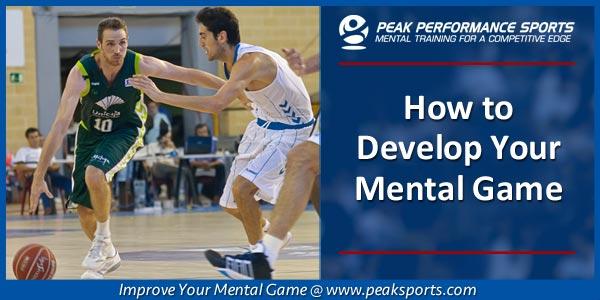
Mental Game Coaches And How They Help The Pros
Why do so many athletes neglect their mental game?
Why would you spend so much time developing your physical skills and scrimmaging yet neglect the one part of the game that impacts performance the most… the mental side of the game?
Olympic athletes have consulted with Mental Game Coaches and Sport Psychologists for decades.
Even the professional ranks have followed suit acknowledging the importance of a strong mental game.
Recent statistics indicate that more than half of the 30 NBA teams have performance coaches on staff working full time or as consultants on call. Many other players have sought out sport psychology professionals on their own to deal with the mental rigors of the game.
Let’s see some of the specific reasons why some professional basketball players have sought out help from sport psychology professionals…
Los Angeles Lakers forward Metta World Peace had difficulty relaxing, dealing on-court emotions and managing distractions off the court.
PEACE: “My [sport psychologist] helped me relax a lot. It’s so difficult to play. There’s so much emotion going on during the playoffs, and she helped me relax… I wouldn’t have been able to deal with certain things. I don’t think I would have been as effective in [Game 7 of the 2010 playoffs] without my psychologist.”
The Dallas Mavericks have had [sport] psychologist on staff for 15 years to improve player’s concentration during games, lessen the pressure player’s place on themselves and focus on developing their mental skills.
Mavericks power forward and 18-year veteran Dirk Nowitzki noted that working with a mental coach helped him focus on the process, minimize anxiety and develop the mental toughness needed to sustain a long career in a highly competitive league.
NOWITZKI: “[Working with the team Sport Psychologist] really helps the young guys. I mean he helped me when I was young.”
Antawn Jamison, who played for 16 years in the NBA, noted how a Sport Psychologist helped him communicate with his coach more effectively, manage distractions and deal with performance highs and lows.
JAMISON: “Dealing with being away from my family and friends, also not playing particularly well, not understanding where the coach is coming from… I had a lot going on. I had a guy who really was there for me to deal with the ups and downs; he was the team [sport] psychologist.”
Your (or your athletes’) mental game has a huge impact on how you play…
Learning how to focus, manage pressure, play more consistently, deal with distractions, improve confidence and develop mental toughness can help you raise your game to the next level.
It is undeniable the impact that a Mental Game Coach can have on improving your performance during games. Learn from the pros and commit to working on your mental game.
Tip for developing your mental game:
The first step to improving your mental game is to understand your strengths and weaknesses….
Review your performance in recent games… What are some mental skills you would like to improve? Confidence, focus, trust, composure and pregame mental preparation are examples.
Pick one area to work on in your mental game. For example, if you want to get better with letting go of mistakes, you would make of a list of the mistakes that upset you, your typical reaction to each mistake, and a new reaction to help you stay calm.
Learn all my strategies for improving your composure in competition… Check out The Composed Athlete CD and workbook program–one of the popular programs in The Confident Athlete Series…
Related Sports Psychology Articles
- Mental Game Keys to Take Your Practice to Competition
- Coach: Support Your Athlete’s Mental Game
- Your Mental Game and Performance Slumps
*Subscribe to The Sports Psychology Podcast on iTunes
*Subscribe to The Sports Psychology Podcast on Spotify
Download a free sports psychology report to improve your mental game!
Learn more about our one-on-one mental game coaching.
The Composed Athlete

“The Composed Athlete” is presented on 80-minute Audio Programs with a 70-page step-by-step workbook that guides you through the program each day. It’s a complete system for conditioning your mind to have maximum composure in competition.
“The Composed Athlete” was developed for any level coach, parent, or junior to professional athlete who wants to improve performance and gain a competitive edge. It does not matter if you are a fledgling junior athlete; or a seasoned professional, plagued with distractions; or you just wanting to learn how to improve your composure…
